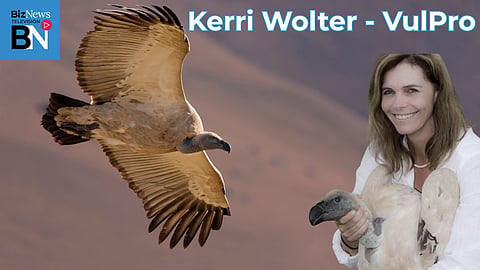Cape vultures killed for muti find young protectors in Limpopo – Keri Wolter (Vulpro CEO)
Many African cultures use body parts, claws, teeth and hides in rituals. Vultures are often targeted because their keen eyesight is believed to grant clairvoyance. In Limpopo’s Blouberg Nature Reserve, VulPro is raising awareness of vultures’ vital role; community involvement and youth engagement have reduced muti‑related killings. CEO Keri Wolter told BizNews that school programmes have shifted young people’s attitudes — more now report sightings and value vulture protection. Wolter says vultures uniquely consume diseased carcasses and that her interest began after raising an abandoned chick. She said Vulpro is hoping to use the success of the Limpopo project to other hot spots area of South Africa where there is side-by-side living with culture colonies.
Sign up for your early morning brew of the BizNews Insider to keep you up to speed with the content that matters. The newsletter will land in your inbox at 5:30am weekdays. Register here.
Support South Africa’s bastion of independent journalism, offering balanced insights on investments, business, and the political economy, by joining BizNews Premium. Register here.
If you prefer WhatsApp for updates, sign up to the BizNews channel here.
Watch here
Listen here

